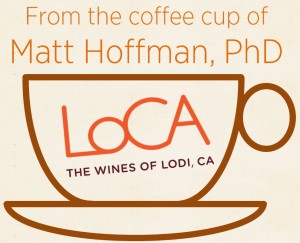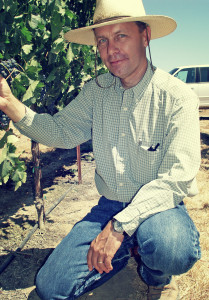 The Commission’s team of Coffee Shop contributors is rapidly growing. Today, I’ll introduce yet another addition to our team: Stan Grant. Stan, like Paul Verdegaal, Larry Whitted, and all our Coffee Shop contributors, has the training and experience to bridge the divide between science and practice. He is as comfortable talking about soil chemistry with university professors as he is talking about soil amendments with Lodi winegrape growers.
The Commission’s team of Coffee Shop contributors is rapidly growing. Today, I’ll introduce yet another addition to our team: Stan Grant. Stan, like Paul Verdegaal, Larry Whitted, and all our Coffee Shop contributors, has the training and experience to bridge the divide between science and practice. He is as comfortable talking about soil chemistry with university professors as he is talking about soil amendments with Lodi winegrape growers.
Stan is a systems thinker. He recognizes that agriculture is a complex system made up of interactions between a multitude of biotic and a-biotic factors. For Stan, achieving any goal in the vineyard, such as making fruit quality standards or controlling a particular pest, is not about finding one single solution. I think Stan would agree that here are no silver bullet solutions to viticulture problems. Rather, achieving vineyard goals require understanding the elements of the system, the relationships among them, and then devising a strategy to manage the system in a way that achieves the goals and maintains system balance. For example, before advising a grower on a nitrogen management strategy, Stan would want to know about variables such as soil type, soil, leaf tissue, and irrigation water test results, yield targets, and the availability of other essential plant nutrients such as boron, manganese, copper, and molybdenum because these nutrients affect how vines utilize nitrogen. Stan strives to think holistically.
__________________________________________________________________________________
Stan’s first Coffee Shop article, titled “Vineyard Managment Self-evaluation”, will be posted within the next few weeks.
__________________________________________________________________________________
 Stan was reluctant to admit he has a specialty because of his systems perspective. Only when I pressed him did he concede his knowledge of soils is probably his greatest strength. I would add that another of Stan’s specialties is his scientific and analytic approach, which he brings to bear on all his viticultural work. Stan earned an M.S in soil science with specializations in soil fertility and viticulture from UC Davis. While at Davis, he had internships with Cooperative Extension in Stanislaus County and with the Herzog Company in Clarksburg. After graduation, his first job was as a grower relations trainee for Gallo Vineyards. The following year, he was appointed viticulturist for the company. In that capacity, he developed the Gallo Viticulture Department, including an agricultural lab and research program. After several years, he left Gallo to become Director of Farming for Duarte Nursery.
Stan was reluctant to admit he has a specialty because of his systems perspective. Only when I pressed him did he concede his knowledge of soils is probably his greatest strength. I would add that another of Stan’s specialties is his scientific and analytic approach, which he brings to bear on all his viticultural work. Stan earned an M.S in soil science with specializations in soil fertility and viticulture from UC Davis. While at Davis, he had internships with Cooperative Extension in Stanislaus County and with the Herzog Company in Clarksburg. After graduation, his first job was as a grower relations trainee for Gallo Vineyards. The following year, he was appointed viticulturist for the company. In that capacity, he developed the Gallo Viticulture Department, including an agricultural lab and research program. After several years, he left Gallo to become Director of Farming for Duarte Nursery.
Today, Stan works as a viticulture consultant through his business: Progressive Viticulture. He has clients across the Lodi Region as well as elsewhere in the Northern Interior and other California wine grape growing regions. He also works with Mid Valley Agricultural Services to supplement the expertise of their field staff. Stan’s work gives him the opportunity to learn about winegrowing in a diversity of climate and soil conditions, different sizes of vineyard operations, and different winegrowing business models. This wide range of experience means Stan has a breadth of winegrowing knowledge.
In addition to his future Coffee Shop articles, we have benefited from Stan’s expertise by way of his involvement in the Lodi Rules Committee. Stan has served on the committee since its inception, and was instrumental in the two -year-long process of developing the second edition of Lodi Rules standards. Stan has put his background in research into practice through his involvement in various Commission research projects. In fact, Stan was a member of the Commission’s Research Committee for over 12 years. He also played a role in the revision of the Lodi Winegrower’s Workbook.
The Commission is fortunate to have Stan Grant as a Coffee Shop contributor. He brings his systems perspective, his analytical and scientific thinking, and a great deal of experience with writing. His Practical Winery and Vineyard articles and 13 years’ worth of Mid Valley Agricultural Services’ newsletters are testament to his ability to communicate scientific messages to growers. Keep your eyes out for a Coffee Shop article from Stan soon.

